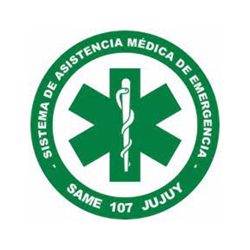With the data from the largest study of the complete genome in cancer and numerous clinical trials evaluating new therapies, 2024 is presented as a promising year for progress in the treatment of cancer.
New vaccines against cancer
A recent study indicates that vaccination against HPV-initiated three decades ago has resulted in zero cases of cancer of neck of uterus in women vaccinated.
In the case of cancers that do not have a viral origin, the development of vaccines is more complicated.
The premise, to prepare or activate the immune system against the tumor cells of the organism itself, it is simple, however, the execution is more complex.
This scenario raises two important challenges: to identify specific biomarkers of tumor cells and to address the tendency of cancer to evade detection by the immune.
A strategy is very promising is to develop vaccines that recognize neoantigens in tumor peptides mutated, produced, and only expressed by tumor cells.
To do this, are essential technologies advanced genomic sequencing and bioinformatics analysis that allow to identify neoantigens promising in tumor samples.
These neoantigens are used as a target to produce immunotherapies or vaccines, which are of particular interest in combination with the technology of development of vaccines RNA.
En el 2024 se espera que las vacunas de neoantígenos, basadas en ADN o de ARN, se amplíen a nuevos tipos de cáncer.
Another objective is to design them to recognize neoantigens common present in different patients.
In these moments, the majority of vaccines based on neoantigens custom designed for each patient from the neoantigens produced in their specific tumors. Favoring a treatment of high accuracy, but has the drawback of not allowing for larger-scale production.
Thus, the ability to identify neoantigens present more widespread in various types of tumors could facilitate the production of and access to a greater number of patients.
Finally, the results of recent vaccines indicate that, in combination with other immunotherapies, these approaches may be more effective.
Future research is aimed to determine the combinations of vaccines with other therapies already approved regimens and treatment more efficient.
The future of cancer vaccines is promising and relatively close to some types of cancer.
Therapies, CAR-NK in cancer research
In recent years, cellular therapies have emerged as an effective immunotherapeutic strategy against cancer.
Of therapy with donor lymphocyte T lymphocytes modified, there are numerous approved treatments, primarily for the treatment of hematologic cancers.
One of the most recent additions to this type of approaches, cell-based therapies are NK cells (Natural Killer), as amended.
As T cells, NK cells, lymphocytes, although in this case belong to the innate immune system.
NK cells they stand out for their ability to recognize and attack virus-infected cells and tumor cells without the need of a prior recognition of specific antigens.
Due to its characteristics, are expected to offer solutions that do not cover the therapies cells CAR-T.
The same, don't need a sensitization process prior as T cells, but it is necessary to consider the variety of surface receptors that are involved in its complex mechanism, to activate the destruction of the target cells, which depends on the balance between inhibitory signals and activating.
Another advantage of the therapies based on NK cells is that they exhibit a lower risk of causing syndromes of release of cytokines and severe graft versus host disease.
NK cells may become candidates for the development of therapies with allogeneic cells, which do not use cells from the patients themselves.
Until the moment, the greater part of the cellular therapies using cells from the patients themselves, which is modified and amplified in the laboratory.
This strategy with autologous cells required to prepare the treatment is specific to each patient, which is a strong limitation of resources.
Hence the interest in developing therapies that may use other donors, or, what is still more desirable, therapies universal.
In 2024 have already posted some promising results for these cells in the field of cancer. A clinical trial de fase 1-2 ha obtenido resultados positivos para una terapia con células NK derivadas de cordón umbilical modificadas genéticamente.
Tras utilizar la terapia en 37 pacientes con leucemia de células B resistentes al tratamiento, se obtuvo una respuesta del 100% en pacientes con linfoma no Hodgkin de bajo grado y un 67% de pacientes con leucemia linfocítica crónica.

Recently, it released the results of the largest genome sequencing in cancer.
The combined analysis of genomic data and clinical 13 000 cancer patients participating in the program to 100,000 genomes from the Uk, revealed something already announced in previous studies: that the genome sequencing can provide a more complete view of the genetic profile of a tumor to detect various genetic changes by using a single test.
The results showed, for example, that more than 90% of brain tumors and more than 50% of colon cancers, and lung exhibit genetic changes that can affect the way you treat patients.
Thanks to its ability to process and analyze large sets of complex data and extract meaningful patterns, artificial intelligence has become a tool that is increasingly present in numerous medical applications and genomic.
Stand out mainly on its applications in the field of medical imaging and the diagnosis of genetic and genomic. Especially in the field of oncology.
In the case of genomics, artificial intelligence begins to be used in the development of predictive models aimed to predict the progression of cancer and the response of patients to specific treatments, as well as suggest treatments or identify potential targets for therapies.
Another example, is to provide a global vision of the patient, as has been proposed in the Study DipCan, which will generate a artificial intelligence algorithm that integrates multiple perspectives (clinical, molecular, radiologic, anatomic...) of patients with solid tumors metastatic.
The 2024, begins with some examples of very interesting, as a tool designed for Genomics England que mejora la precisión de la secuenciación del genoma en cáncer hematológico, o un algoritmo desarrollado por la Universidad de California San Diego que predice cómo influyen las mutaciones del cáncer en la respuesta a ciertos tratamientos oncológicos.
An area of great interest is the discovery of drugs, especially in terms of increasing the rate of clinical success of drugs in development, to determine the combinations of more effective therapies against cancer, or to identify treatments for molecular targets considered up to the times as “non-treatable”, as some mutations of KRAS.
For example, tools such as AlphaFold, an algorithm that predicts the structure of proteins, can result in significant savings of time to identify drugs appropriate and it is also hoped that the emergence of new algorithms involved in other stages, such as the design of molecules that bind to targets of interest.
Other topics of relevance are RNA-based treatments with replicative capacity, or the liquid biopsies, which have advanced over the past few years, and where, again, the combination of genomics and artificial intelligence may result in significant advances for the diagnosis.





















































